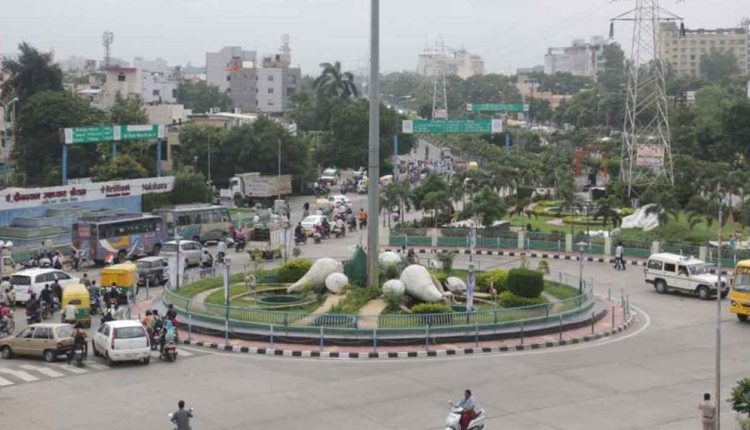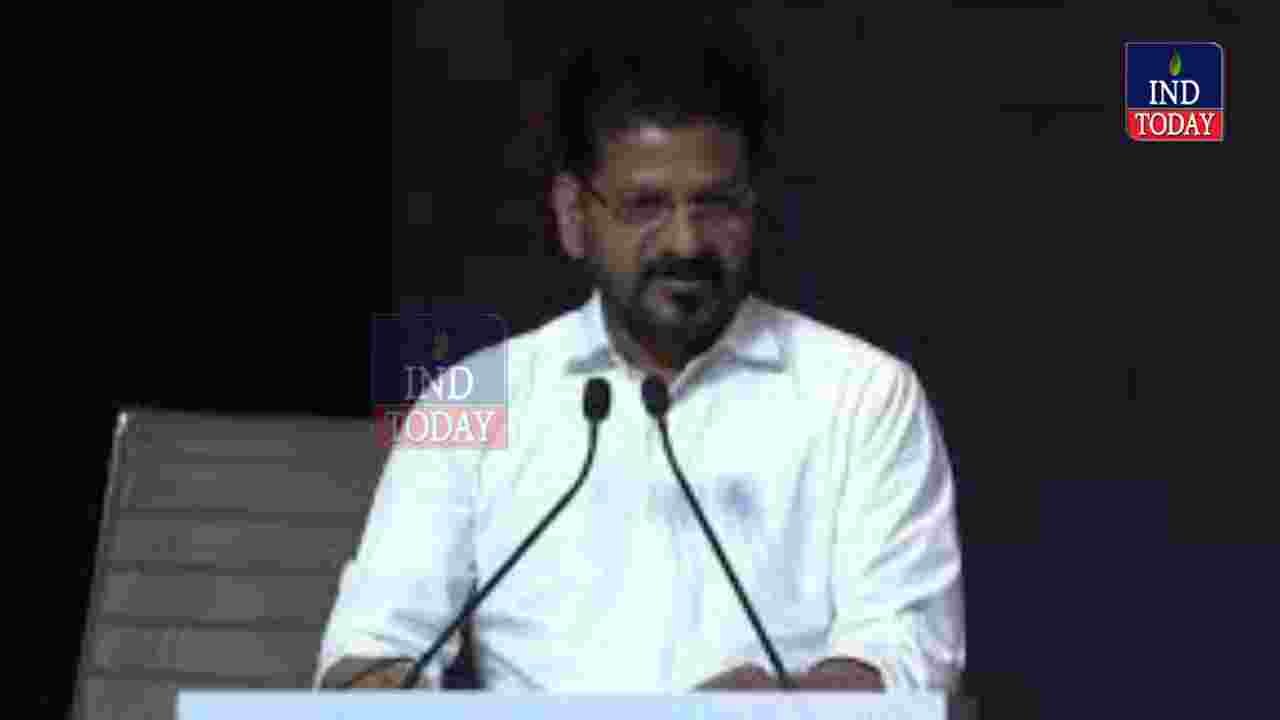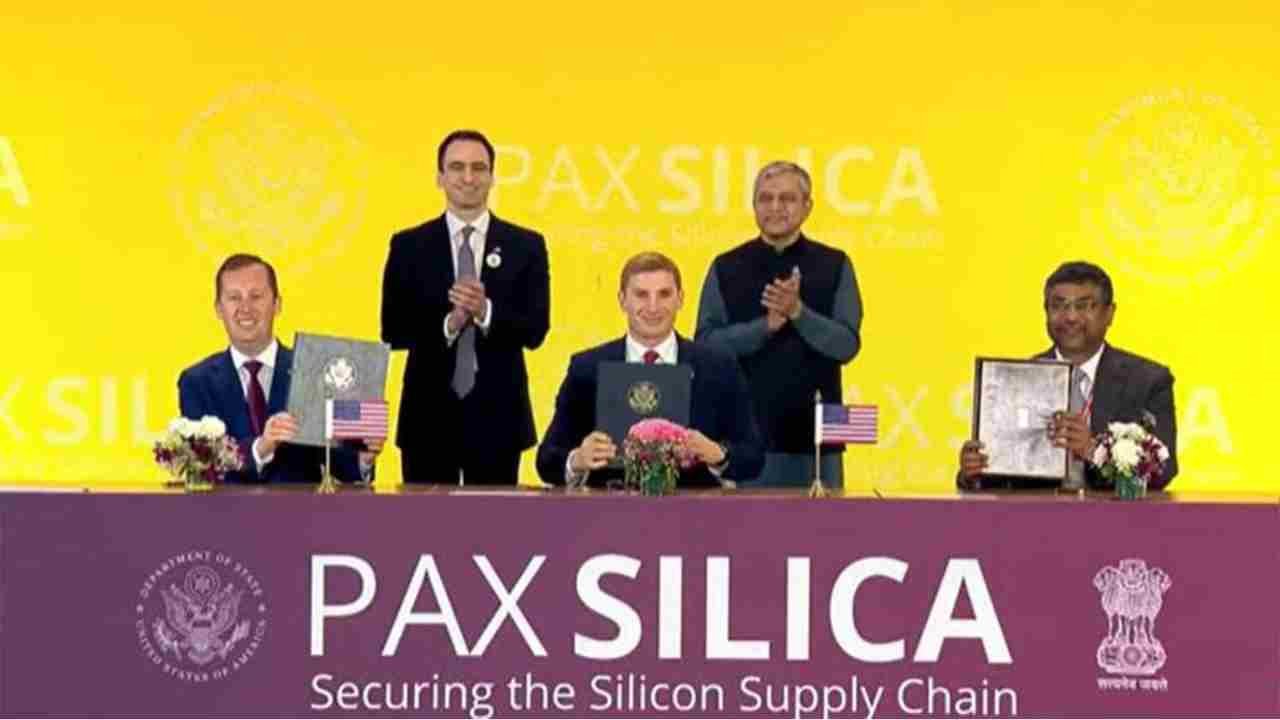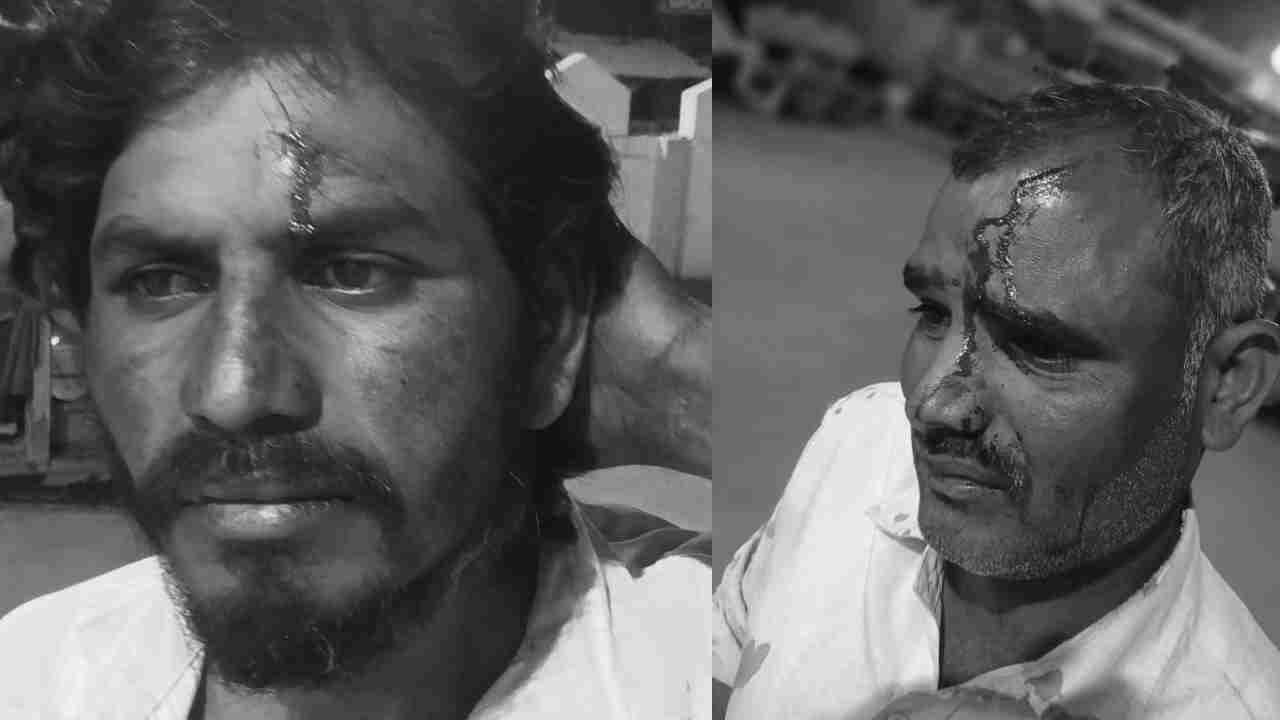Indore cleanest city for 6th time in a row; Surat retains the second position
Indore was on Saturday declared the cleanest city in India for the sixth consecutive year, and Madhya Pradesh the best-performing state in the Swachh Survekshan 2022, the central government’s annual cleanliness survey of urban areas under the Swachh Bharat Mission.
Indore is also India’s first 7-star garbage-free city, which is one of the key objectives of the second iteration of the Swachh Bharat Mission launched last year. Eleven cities, including Surat, Bhopal, Mysuru, Navi Mumbai, Visakhapatnam, and Tirupati, earned 5-star garbage-free certifications, according to the housing and urban affairs ministry.
While Surat retained its second position for the third year in a row, Navi Mumbai climbed up one spot from 4th to 3rd among cities with more than 100,000 population in the survey released by the ministry at an event where President Droupadi Murmu gave away awards to top performing urban local bodies and states. Agra in Uttar Pradesh was at the bottom of the list of the top 100 cities in this category.
The New Delhi Municipal Council area was adjudged the cleanest small city with a population of between 1-3 lakh, while Gujarat’s Ahmedabad and Karnataka’s Mysuru were given the award for the cleanest mega city and medium city, respectively. The NDMC stood at 9th position in the list of cities with more than one lakh population. Among the big cities with a 10-40 lakh population, Visakhapatnam was given the clean big city award, while Rajkot was adjudged as the best self-sustainable city.
Chhattisgarh and Maharashtra ranked second and third, respectively, among states with more than 100 urban local bodies (ULB), while Tamil Naidu was the worst performer in this category. Among states with less than 100 ULBs, Tripura was rated as the best performing, followed by Jharkhand and Uttarakhand. Meghalaya once again was at the bottom of the list.
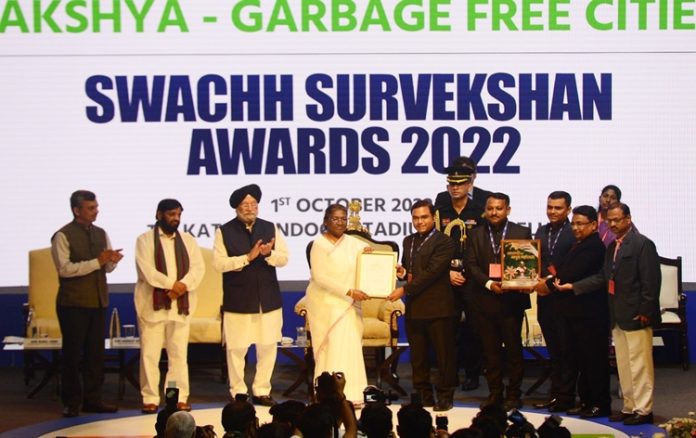
Among cities with more than one million population, Indore was at the top, while Madurai was at the bottom of the list. The three civic bodies (now reunified under the Municipal Corporation of Delhi) in the national capital were assessed individually in the nationwide survey. The performance of the city bodies improved marginally in the past two years.
Addressing the gathering on Saturday, President Murmu lauded the efforts of ULBs and states in improving sanitation in cities and said other cities across the country can follow the model of people’s participation adopted by the residents of Indore.
“The continuous efforts of central and state governments and all citizens in the last eight years are behind the success of the Swachh Bharat Mission. Our Safai Mitras have played the most important role in achieving this success. They worked continuously for maintaining cleanliness even during the COVID pandemic,” Murmu said.
Form just 73 cities surveyed during the first Swachh Survekshan in 2016, the number has increased to 4,354, including 62 cantonment boards and 91 Ganga towns, in eight years, housing and urban affairs minister Hardeep Singh Puri said.
Nearly 600 cities have taken extensive measures to ensure the safety of sanitation workers, he said. “Nearly 600 of our cities have become Safaimitra Surakshit, with complete mechanization of sewer and septic tank cleaning operations,” Puri said. “Manholes have now become machine holes in these cities. Municipal solid waste processing has gone up from 18% in 2014 to 73% today.”
Tirupati in Andhra Pradesh received the best city award in the Safai Mitra Suraksha category.
This year, 22 states and five Union Territories received awards under various categories, of which eight states, including Madhya Pradesh, and Maharashtra, received more than 10 awards each.
Under Swachh Bharat Mission 2.0, all Indian cities will be made garbage-free by 2026, the minister said. A three-week long campaign will start from October 2 to encourage people to do garbage segregation at source, Puri said.
This year, 3,600 cities applied for assessment under the star rating protocol of garbage-free cities, compared with 2,238 last year. “This year, 412 cities have been given the star rating, 11 five-star cities, 182 three-star cities, and 218 one-star cities,” Puri said.
According to the survey, 2,684 ULBs practiced segregated door-to-door garbage collection in more than 55% of wards, and 980 ULBs processed at least 80% of the collected wet waste. Around 1,585 ULBs have identified and integrated 100% of informal waste pickers within their system.
Panchgani in Maharashtra was given the cleanest city award among cities with less than 100,000 population, followed by Chhattisgarh’s Patan and Maharashtra’s Karnad.
Among the 62 cantonments, Deolali in Maharashtra was adjudged the cleanest. Haridwar has been ranked as the cleanest Ganga town with more than one lakh population, followed by Varanasi and Rishikesh, while Bijnor was ranked the best Ganga town in the less than one lakh population category.
The focus of this survey was people first, ministry officials said. “Around 18,17,513 feedback through direct interaction has been taken. Around 9 crore people gave their feedback through various sources like Swachhatta app, Vote for your city app, mygov app, etc.,” a ministry official said, seeking anonymity. “A citizens’ report card has been introduced for the first time this year. The purpose of the report card is to disseminate information regarding the status of cleanliness in the city to the citizens.”
Next Story :
India Signs Pax Silica Agreement At AI Impact Summit
![India Signs Pax Silica Agreement At AI Impact Summit]()
Delhi/Hyderabad, Feb 20 (Maxim News): India today signed an agreement with US-based Pax Silica. The two countries signed the Pax Silica Declaration. The two countries signed this strategic agreement at the AI Impact Summit being held at Bharat Mandap in Delhi. Union Minister Ashwini Vaishnav signed the declaration in the presence of US Representative Sergio…
Now you can get latest stories from Indtoday on Telegram everyday. Click the link to subscribe. Click to follow Indtoday Facebook page and Twitter and on Instagram. For all the latest Hyderabad News updates

